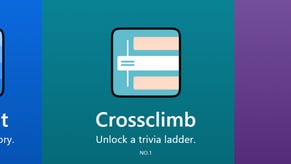Smartphone and tablets now 8% of U.S. games market
DS is Nintendo's "own burning platform" claims Flurry report
The traditional home console business is quickly losing revenue share to the smartphone market, according to a new report from mobile analyst firm Flurry.
The report is based only on publicly available data and the company's own estimates, but appears to show that the revenues from smartphone and tablet games rose from 19 per cent of the U.S. portable game software market in 2009 (iOS only), to 34 per cent in 2010 (iOS and Android combined).
At the same time the market share for the Nintendo DS family of consoles fell from 70 per cent to 57 per cent, while the PSP dropped from 11 per cent to 9 per cent.
However, both portable consoles were nearing the end of their lifetime by 2010 - when their revenues might naturally be expected to fall. It is also unclear whether the smartphone revenues represent a true loss in market share on the part of consoles or simply an expansion of the whole category.
However, Flurry characterises Nintendo as, "struggling with its own burning platforming: Nintendo DS". The report is also adamant that smartphone revenues are increasing "at the expense of portable gaming".
Flurry's data for the video games market as a whole in the U.S. suggests that the smartphone and tablet market has risen from 5 per cent in 2009 to 8 per cent in 2010. This is estimated as an increase of $500 million to $800 million.
At the same time portable consoles have fallen from 24 per cent to 16 per cent, while home consoles have increased from 71 per cent to 76 per cent.
Since the report covers only publicly available data this does not include digital sales for any traditional console platform. It also does not include PC titles, although Flurry nevertheless estimates that smartphone and tablet revenues exceeded the estimated $700 million PC games market in 2010.
Although Flurry's data shows Apple's iOS having the high-end smartphone market essentially all to itself in 2009, the Android operating system is now dominant. Apple has closed the gap in recent months though, with the most recent data giving Android a 48 per cent market share, iOS 31 per cent, and RIM 18 per cent.







